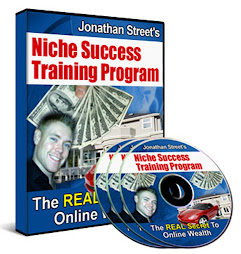Life isn’t the sweetest candy. Sometimes, when I feel like the world is just too heavy, I look around and find people who continued to live fascinating and wonderful lives. And then thoughts come popping into my mind like bubbles from nowhere – “How did their life become so adorably sweet? How come they still can manage to laugh and play around despite a busy stressful life?” Then I pause and observed for awhile… I figured out that maybe, they start to work on a place called ‘self’.
So, how does one become genuinely happy? Step 1 is to love yourself.
My theology professor once said that “loving means accepting.” To love oneself means to accept that you are not a perfect being, but behind the imperfections must lie a great ounce of courage to be able to discover ways on how to improve your repertoire to recover from our mistakes.
Genuine happiness also pertains to contentment. When you are contented with the job you have, the way you look, with your family, your friends, the place you live in, your car, and all the things you now have – truly, you know the answer to the question “how to be genuinely happy.”
When we discover a small start somewhere from within, that small start will eventually lead to something else, and to something else. But if you keep questioning life lit it has never done you any good, you will never be able to find genuine happiness.
I believe that life is about finding out about right and wrong, trying and failing, wining and losing. These are things that happen as often as you inhale and exhale. Failure, in a person’s life has become as abundant and necessary as air. But this should not hinder us from becoming happy.
How to be genuinely happy in spite all these? I tell you… every time you exert effort to improve the quality of life and your being, whether it is cleaning up your room, helping a friend, taking care of your sick dog, fail on board exams and trying again, life gives you equivalent points for that.
Imagine life as a big score board like those which are used in the NFLs. Every time you take a step forward, you make scoring points. Wouldn’t it be nice to look at that board at the end of each game and think to yourself “Whew! I got a point today. I’m glad I gave it a shot.”, instead of looking at it all blank and murmur “Geez, I didn’t even hit a score today. I wish I had the guts to try out. We could have won!” and then walk away.
Genuine happiness isn’t about driving the hottest Formula 1 car, nor getting the employee of the year award, earning the highest 13th month pay, or beating the sales quota. Sometimes, the most sought after prizes in life doesn’t always go to the fastest, the strongest, the bravest or not even the best. So, how do you become genuinely happy? Every one has his own definition of ‘happiness’. Happiness for a writer may mean launching as much best selling books as possible. Happiness for a basketball rookie may mean getting the rookie of the year award. Happiness for a beggar may mean a lot of money. Happiness for a business man may mean success. So, really now, how do we become genuinely happy? Simple. You don’t have to have the best things in this world. Its about doing and making the best out of every single thing. When you find yourself smiling at your own mistake and telling your self “Oh, I’ll do better next time”, you carry with you a flame of strong will power to persevere that may spread out like a brush fire. You possess a willingness to stand up again and try – that will make you a genuinely happy person.
When you learn to accept yourself and your own faults. You pass step 1 in the project “how to become genuinely happy”. For as long as you know how to accept others, you will also be accepted. For as long as you love and know how to love, you will receive love ten folds back.
Again, throw me that same question “how to become genuinely happy?”. I’ll refer you to a friend of mine who strongly quoted- “Most of us know that laughter is the best medicine to life’s aches and pain. But most of us don’t know that the best kind of laughter is laughter over self. Coz then you don’t just become happy… you become free.”
How To Turn Other Peoples Hard Work Into A Part Time And Instant Internet Business
http://tinyurl.com/m6s4kl
Saturday, February 20, 2010
Saturday, February 6, 2010
A Vision of Success
Life Mapping:
Success is more than economic gains, titles, and degrees. Planning for success is about mapping out all the aspects of your life. Similar to a map, you need to define the following details: origin, destination, vehicle, backpack, landmarks, and route.
Origin: Who you are
A map has a starting point. Your origin is who you are right now. Most people when asked to introduce themselves would for example say, “Hi, I’m Jean and I am a 17-year old, an I’m a student.” It does not tell you about who Jean is; it only tells you her present preoccupation. To gain insights about yourself, you need to look closely at your beliefs, values, and principles aside from your economic, professional, cultural, and civil status. Moreover, you can also reflect on your experiences to give you insights on your good and not-so-good traits, skills, knowledge, strengths, and weaknesses. Upon introspection, Jean realized that she was highly motivated, generous, service-oriented, but impatient. Her inclination was in the biological-medical field. Furthermore, she believed that life must serve a purpose, and that wars were destructive to human dignity.
Destination: A vision of who you want to be
“Who do want to be?” this is your vision. Now it is important that you know yourself so that you would have a clearer idea of who you want to be; and the things you want to change whether they are attitudes, habits, or points of view. If you hardly know yourself, then your vision and targets for the future would also be unclear. Your destination should cover all the aspects of your being: the physical, emotional, intellectual, and spiritual. Continuing Jean’s story, after she defined her beliefs, values, and principles in life, she decided that she wanted to have a life dedicated in serving her fellowmen.
Vehicle: Your Mission
A vehicle is the means by which you can reach your destination. It can be analogized to your mission or vocation in life. To a great extent, your mission would depend on what you know about yourself. Bases on Jean’s self-assessment, she decided that she was suited to become a doctor, and that she wanted to become one. Her chosen vocation was a medical doctor. Describing her vision-mission fully: it was to live a life dedicated to serving her fellowmen as a doctor in conflict-areas.
Travel Bag: Your knowledge, skills, and attitude
Food, drinks, medicines, and other travelling necessities are contained in a bag. Applying this concept to your life map, you also bring with you certain knowledge, skills, and attitudes. These determine your competence and help you in attaining your vision. Given such, there is a need for you to assess what knowledge, skills, and attitudes you have at present and what you need to gain along the way. This two-fold assessment will give you insights on your landmarks or measures of success. Jean realized that she needed to gain professional knowledge and skills on medicine so that she could become a doctor. She knew that she was a bit impatient with people so she realized that this was something she wanted to change.
Landmarks and Route: S.M.A.R.T. objectives
Landmarks confirm if you are on the right track while the route determines the travel time. Thus, in planning out your life, you also need to have landmarks and a route. These landmarks are your measures of success. These measures must be specific, measurable, attainable, realistic, and time bound. Thus you cannot set two major landmarks such as earning a master’s degree and a doctorate degree within a period of three years, since the minimum number of years to complete a master’s degree is two years. Going back to Jean as an example, she identified the following landmarks in her life map: completing a bachelor’s degree in biology by the age of 21; completing medicine by the age of 27; earning her specialization in infectious diseases by the age of 30; getting deployed in local public hospitals of their town by the age of 32; and serving as doctor in war-torn areas by the age of 35.
Anticipate Turns, Detours, and Potholes
The purpose of your life map is to minimize hasty and spur-of-the-moment decisions that can make you lose your way. But often our plans are modified along the way due to some inconveniences, delays, and other situations beyond our control. Like in any path, there are turns, detours, and potholes so; we must anticipate them and adjust accordingly.
Check out www.lenhuttons.greatestbusinessideas.com
Len Hutton.
Success is more than economic gains, titles, and degrees. Planning for success is about mapping out all the aspects of your life. Similar to a map, you need to define the following details: origin, destination, vehicle, backpack, landmarks, and route.
Origin: Who you are
A map has a starting point. Your origin is who you are right now. Most people when asked to introduce themselves would for example say, “Hi, I’m Jean and I am a 17-year old, an I’m a student.” It does not tell you about who Jean is; it only tells you her present preoccupation. To gain insights about yourself, you need to look closely at your beliefs, values, and principles aside from your economic, professional, cultural, and civil status. Moreover, you can also reflect on your experiences to give you insights on your good and not-so-good traits, skills, knowledge, strengths, and weaknesses. Upon introspection, Jean realized that she was highly motivated, generous, service-oriented, but impatient. Her inclination was in the biological-medical field. Furthermore, she believed that life must serve a purpose, and that wars were destructive to human dignity.
Destination: A vision of who you want to be
“Who do want to be?” this is your vision. Now it is important that you know yourself so that you would have a clearer idea of who you want to be; and the things you want to change whether they are attitudes, habits, or points of view. If you hardly know yourself, then your vision and targets for the future would also be unclear. Your destination should cover all the aspects of your being: the physical, emotional, intellectual, and spiritual. Continuing Jean’s story, after she defined her beliefs, values, and principles in life, she decided that she wanted to have a life dedicated in serving her fellowmen.
Vehicle: Your Mission
A vehicle is the means by which you can reach your destination. It can be analogized to your mission or vocation in life. To a great extent, your mission would depend on what you know about yourself. Bases on Jean’s self-assessment, she decided that she was suited to become a doctor, and that she wanted to become one. Her chosen vocation was a medical doctor. Describing her vision-mission fully: it was to live a life dedicated to serving her fellowmen as a doctor in conflict-areas.
Travel Bag: Your knowledge, skills, and attitude
Food, drinks, medicines, and other travelling necessities are contained in a bag. Applying this concept to your life map, you also bring with you certain knowledge, skills, and attitudes. These determine your competence and help you in attaining your vision. Given such, there is a need for you to assess what knowledge, skills, and attitudes you have at present and what you need to gain along the way. This two-fold assessment will give you insights on your landmarks or measures of success. Jean realized that she needed to gain professional knowledge and skills on medicine so that she could become a doctor. She knew that she was a bit impatient with people so she realized that this was something she wanted to change.
Landmarks and Route: S.M.A.R.T. objectives
Landmarks confirm if you are on the right track while the route determines the travel time. Thus, in planning out your life, you also need to have landmarks and a route. These landmarks are your measures of success. These measures must be specific, measurable, attainable, realistic, and time bound. Thus you cannot set two major landmarks such as earning a master’s degree and a doctorate degree within a period of three years, since the minimum number of years to complete a master’s degree is two years. Going back to Jean as an example, she identified the following landmarks in her life map: completing a bachelor’s degree in biology by the age of 21; completing medicine by the age of 27; earning her specialization in infectious diseases by the age of 30; getting deployed in local public hospitals of their town by the age of 32; and serving as doctor in war-torn areas by the age of 35.
Anticipate Turns, Detours, and Potholes
The purpose of your life map is to minimize hasty and spur-of-the-moment decisions that can make you lose your way. But often our plans are modified along the way due to some inconveniences, delays, and other situations beyond our control. Like in any path, there are turns, detours, and potholes so; we must anticipate them and adjust accordingly.
Check out www.lenhuttons.greatestbusinessideas.com
Len Hutton.
Subscribe to:
Comments (Atom)





